Elon Musk Buying TikTok: 'Pure Fiction'!
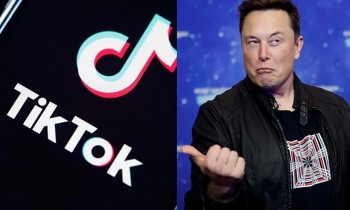 How Much Would TikTok Cost Elon Musk? $50 Billion to $60 Billion How Much Would TikTok Cost Elon Musk? $50 Billion to $60 Billion |
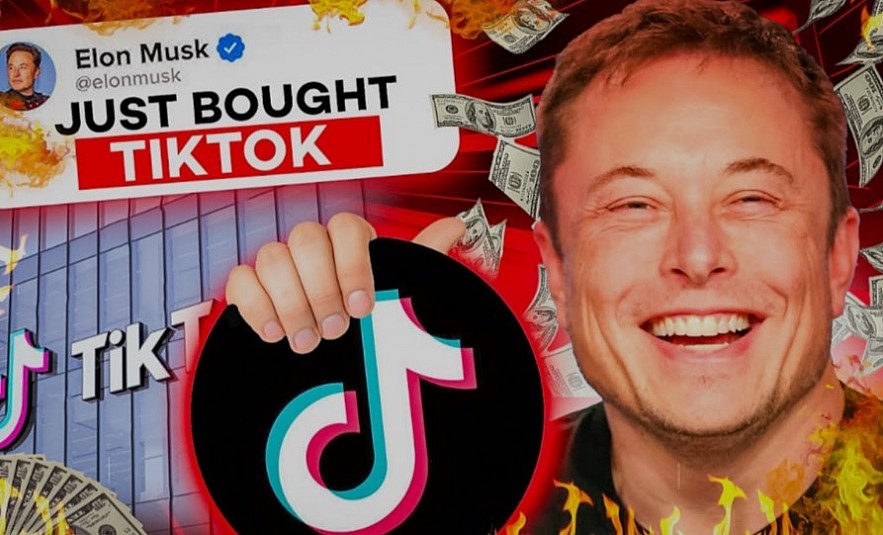 |
| Elon Musk Buying TikTok |
In recent days, speculation has surged regarding the potential sale of TikTok's U.S. operations to tech mogul Elon Musk. These rumors gained traction following a Bloomberg report suggesting that Chinese officials might consider such a sale to prevent a looming U.S. ban on the popular video-sharing app. However, TikTok has firmly labeled these reports as "pure fiction," emphasizing its commitment to remaining under the ownership of its parent company, ByteDance.
Background on the Speculation
The conjecture about Elon Musk acquiring TikTok's U.S. operations emerged amid escalating tensions between TikTok and U.S. lawmakers. Concerns over national security and data privacy have led to legislative efforts aimed at either banning the app or forcing its sale to an American entity. Bloomberg's report, citing unnamed sources, suggested that Chinese officials were contemplating a plan where Musk, who acquired Twitter (now rebranded as X) in 2022, would take control of TikTok's U.S. operations to circumvent a potential ban.
TikTok's Response
In response to these reports, a TikTok spokesperson stated, "We can't be expected to comment on pure fiction," dismissing the notion of a sale to Musk. ByteDance has consistently expressed its intent to retain ownership of TikTok, resisting pressures to divest its U.S. operations.
Legal Pressures and Deadlines
The speculation coincides with significant legal challenges for TikTok in the United States. The Supreme Court is poised to rule on legislation that could either ban TikTok nationwide or compel ByteDance to sell its U.S. operations by January 19, 2025. This law, passed with bipartisan support, reflects deep-seated concerns about the app's Chinese ownership and potential implications for U.S. national security.
ByteDance has until the January deadline to divest TikTok's American business. Failure to do so could result in severe penalties, including the prohibition of third-party internet service providers from supporting the platform's operations in the U.S. Despite these pressures, ByteDance has remained steadfast in its refusal to sell.
Supreme Court Proceedings
The Supreme Court recently heard arguments regarding the constitutionality of the law mandating TikTok's sale or ban. Justices appeared inclined to uphold the legislation, citing national security concerns. Chief Justice John Roberts and other members of the court highlighted the potential risks associated with TikTok's data being accessible to the Chinese government, given ByteDance's obligations under Chinese law.
U.S. Solicitor General Elizabeth Prelogar defended the law, emphasizing the government's responsibility to protect citizens from foreign adversaries. TikTok's legal representatives argued that the law infringes on First Amendment rights by suppressing the freedom of expression facilitated by the platform. However, the court seemed less persuaded by this argument, focusing instead on the national security implications.
Potential Outcomes and Implications
As the January 19 deadline approaches, several scenarios could unfold:
-
Forced Sale: If the Supreme Court upholds the law, ByteDance may be compelled to sell TikTok's U.S. operations. Potential buyers could include American tech companies or investment groups. However, ByteDance's resistance to selling and the complexities involved in transferring ownership, especially concerning TikTok's proprietary algorithms, present significant obstacles.
-
U.S. Ban: Should ByteDance refuse to divest, TikTok could face a nationwide ban. This would entail removal from app stores, preventing new downloads, and could lead to the app becoming non-functional for existing users over time. Such a ban would impact approximately 170 million American users who utilize the platform for social interaction, entertainment, and economic activities.
-
Legal Appeals: TikTok has indicated plans to appeal to the Supreme Court if necessary. The company argues that a ban would cause significant harm to its business and infringe upon the rights of American users and creators. The outcome of such appeals remains uncertain, especially given the judiciary's current stance on national security matters.
Market Reactions and Competitor Movements
The uncertainty surrounding TikTok's future has led to notable shifts in the social media landscape. Alternative platforms, particularly RedNote (known as Xiaohongshu in China), have experienced a surge in downloads as users seek potential replacements. RedNote recently became the most downloaded app on Apple's App Store, driven by concerns over TikTok's potential ban. However, as another Chinese-owned platform, RedNote could face similar scrutiny from U.S. lawmakers.
Other competitors, such as Meta's Instagram Reels, Snapchat, and YouTube Shorts, may also benefit from TikTok's potential exit from the U.S. market. These platforms have been enhancing their short-form video features to attract creators and audiences accustomed to TikTok's format.
Political Dynamics
The political landscape adds another layer of complexity to TikTok's situation. President-elect Donald Trump, set to begin his second term on January 20, has a history of advocating for a TikTok ban during his first administration. However, recent reports suggest he has reconsidered his stance, even requesting the Supreme Court to delay the implementation of the current ban to explore a political resolution. This shift indicates potential negotiations that could influence TikTok's fate in the U.S.
Conclusion
TikTok's dismissal of the rumors regarding a sale to Elon Musk underscores its determination to remain under ByteDance's ownership despite mounting legal and political pressures. As the January 19 deadline approaches, the company's future in the U.S. hangs in the balance, contingent on forthcoming Supreme Court decisions, potential legislative actions, and the evolving geopolitical climate. Users, creators, and stakeholders await the resolution of this high-stakes situation, which could have profound implications for the global social media landscape.
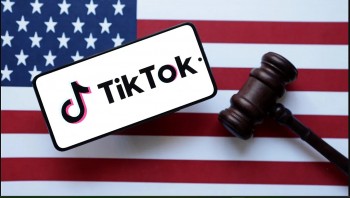 TikTok faces potential ban in the U.S if not sold by January 2025: Waiting for President Donald Trump TikTok faces potential ban in the U.S if not sold by January 2025: Waiting for President Donald Trump The Supreme Court on Wednesday agreed to hear arguments by TikTok that a law that could lead to a ban of the popular social media ... |
 What is TikTok Account of School Shooter Natalie Rupnow What is TikTok Account of School Shooter Natalie Rupnow A TikTok account allegedly linked to Wisconsin school shooter Natalie Rupnow was reportedly removed following a surge of complaints. |
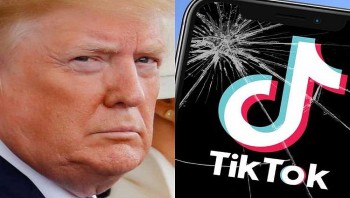 Trump Asks Supreme Court to Pause TikTok Ban Trump Asks Supreme Court to Pause TikTok Ban President-elect Donald Trump wants the Supreme Court to pause a law that could ban TikTok in the U.S. next month. |
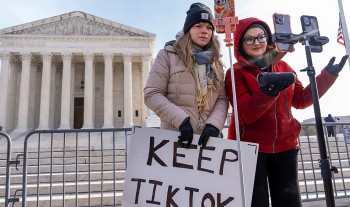 U.S. Supreme Court is Likely to Force TikTok to Sell or Shut Down U.S. Supreme Court is Likely to Force TikTok to Sell or Shut Down The U.S. Supreme Court is poised to uphold a law that mandates the Chinese parent company of TikTok, ByteDance, to either divest from the popular ... |























